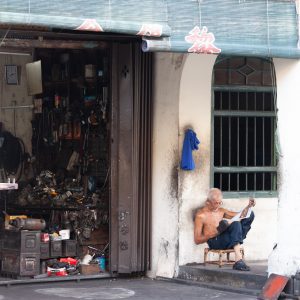

Labour Day in Malaysia was first marked in the early 1970s, when then deputy prime minister Tun Dr Ismail Abdul Rahman announced 1 May as a public holiday.
He made the announcement while officiating a trade union seminar in Kg Pandan, Kuala Lumpur, with the hopes that the labour movement would perceive 1 May as a day dedicated to workers to befit the national aspirations.
Forty-nine years later, with Malaysia grappling with an unprecedented pandemic and rising inequality, how much of that still holds true?
ISIS Malaysia presentations on the Malaysian labour market
Trends in Malaysia’s Future of Work
Presentation by: Calvin Cheng with Harris Zainul
Date: 30 September
Presented at the Network of ASEAN-China Think Tanks (NACT) working group discussion on “Future of Labour in ASEAN and China: Challenges and Responses”, this presentation gives an overview of where Malaysia’s labour force is heading. And how quickly we’re getting there.
Pushed to the Margins: the unequal impacts of the COVID-19 crisis on Malaysian workers
Presentation by: Calvin Cheng
Date: 1 April
Presented at an online ISIS Forum titled “Fighting the inequality pandemic: COVID-19 and its economic impacts on marginalised worker groups” and presents updated and extended research from the November 2020 ISIS Malaysia Policy Brief Issue #07-20 “Pushed to the Margins”.
Combing through a wide range of labour force survey data, the presentation looks at the state of the Malaysian labour market over the past year and analyses the vastly unequal impacts that the COVID-19 crisis had on different worker groups.
The presentation shows how traditionally marginalised worker groups like women, youth and lesser-educated and “lower-skilled” workers have been disproportionately devastated by the pandemic compared with older, male, white-collar, tertiary-educated workers.
ISIS Malaysia webinars on worker rights and equality
Foreign Policy Speaker Series: Why Aren’t There More Women Making Decisions?
The Foreign Policy Speaker Series is a collaboration between Institute of Strategic and International Studies (ISIS) Malaysia and the United States Embassy Kuala Lumpur, bringing together speakers from both Malaysia and the United States for spirited and thoughtful discussions on a variety of topics.
This webinar, aired on 8 Mar to mark International Women’s Day, asked what type of structures and incentives need to be in place to propel more women to leadership positions in Malaysia and the United States, and the systemic issues surrounding this lack of incentives in the past.
Inequality is a systemic issue, arising from myriad factors. However, a major factor contributing to inequality is lack of representation. Discussing the shortcomings of the current system is the first step in finding just and equitable solutions.
Moderator:
Mr Terrence Too
Fellow, Social Policy and National Integration (SPNI)
Institute of Strategic and International Studies (ISIS) Malaysia
Co Moderator:
Tengku Nur Qistina
Senior Researcher
Social Policy and National Integration (SPNI)
Institute of Strategic and International Studies (ISIS) Malaysia
Speakers:
Ms Tashny Sukumaran
Founder, 5050malaysia.com
Ms Beverly Kirk
Fellow and Director for Outreach,
International Security Program Centre for Strategic and International Studies (CSIS) and Director, Smart Women, Smart Power Initiative
The onset of the pandemic has exacerbated pre-existing inequalities-with marginalised and underserved communities and regions facing the largest socio-economic impacts from the virus.
More than 400,000 households in Malaysia are currently living below the national poverty line, with hundreds of thousands more households vulnerable to falling into poverty as economic conditions worsen.
Similarly, since the beginning of the year, more than 200,000 Malaysians have been put out of work. Moreover, employment data so far suggests that the impacts of the pandemic on jobs have unevenly impacted lower-skilled, part-time jobs, and have disproportionately affected marginalised groups like women and youth workers. This webinar aims to focus on the distributional impacts of the crisis, and how it has affected social protection.
What are the gaps in the exisiting Prihatin/Penjana economic response packages and what else is needed? How can take advantage of this crisis to invest in building social protection systems now that can help Malaysia better weather a similar crisis in the future?
Moderator:
Mr Terence Too
Fellow, Social Policy and National Integration (SPNI)
Institute of Strategic and International Studies (ISIS) Malaysia
Co-Moderator:
Mr Calvin Cheng
Analyst Economics, Trade and Regional Integration (ETRI)
Institute of Strategic and International Studies (ISIS) Malaysia
Speakers:
Datuk Emeritus Professor Dr Norma Mansor
Social Wellbeing Research Centre (Swrc)
Faculty of Economics and Administration University of Malaya
Dr Amanina Abdur Rahman
Economist
Social Protection and Jobs Global Practice, World Bank
Dr James Alin
Senior Lecturer, Faculty of Business, Economics and Accountancy,
Universiti Malaysia Sabah (UMS) Malaysia
ISIS Malaysia publications and articles on the cost of inequality
When does a recession look like a recession?
by Calvin Cheng
Date: 20 April

By many measures, the COVID-19 crisis has been devastating to Malaysia’s economy. However, while many have been devastated by the sweeping impacts of the pandemic, others are redirecting travel budgets into increased spending on shopping, dining, and entertainment.
Read the full article here
Follow ISIS Malaysia’s social media channels as we discuss, dissect and analyse Malaysia’s dynamic labour force.






